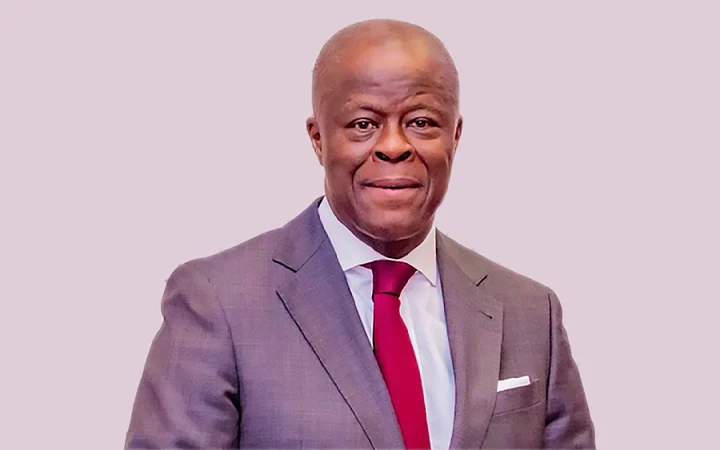The Federal Government has paid out ₦330 billion in direct cash transfers as part of its strengthened social protection initiative, reaching more than 8.1 million vulnerable households across Nigeria. Minister of Finance and Coordinating Minister of the Economy, Wale Edun, disclosed this figure in Abuja, saying the programme is ramping up efforts to cushion the effects of economic reforms like fuel subsidy removal and currency changes.
Edun explained that the cash-transfer scheme is being administered via the National Social Safety Net Coordinating Office (NASSCO). The payments are financed by an $800 million facility supported by the World Bank, and beneficiaries are drawn from the National Social Register, which has about 19.7 million poor and vulnerable households (over 70 million individuals) mapped across Nigeria. The first tranche of ₦25,000 has already gone out to roughly 8.5 million households — some have received one payment, others two, and a smaller number all three so far.

Originally, the programme was designed to assist 15 million poor households, split across three tranches of ₦25,000 each. As of the latest update, about 54 percent of the target (that is, around 8.11 million households) have received at least the first tranche. The challenge of delays—especially in earlier months—was linked to verification issues, particularly in linking the National Identity Number (NIN) with bank accounts or mobile wallets. These verification steps are now largely resolved, contributing to accelerated disbursements.
National Coordinator of NASSCO, Funmi Olotu, confirmed that more than 10.2 million NINs have been collected and about 9.6 million verified. She stressed that linking the NIN to the National Social Register is a central feature of the government’s push for accountability and transparency. The directive is that payments go directly into verified bank accounts or mobile wallets—not via traditional cash ceremonies—ensuring beneficiaries genuinely receive funds and that leakages or fraud are minimized.
Also revealed was a breakdown of how many households had received how many tranches. Of the 8.11 million households covered so far, approximately 2.75 million have gotten two payments, and about 2.43 million have received all three tranches. The remaining households are expected to receive payments in the coming months, with the government committing to complete payments for the full 15 million household target before year-end.
Another aspect of the report covered gender and regional distribution. Around 69 percent of households benefiting from the programme are headed by women. Regionally, however, there is unevenness: the North has received about 72 percent of total disbursements, with the South receiving the remaining 28 percent. These numbers reflect both population distribution and patterns of poverty, according to officials.
Edun emphasized that this cash transfer intervention is part of President Bola Tinubu’s broader strategy to ensure that macroeconomic reforms are not carried out without concomitant social protection mechanisms. With reforms like subsidy removal and naira devaluation placing pressure on low-income and vulnerable Nigerians, the programme aims to reduce the hardship and restore some level of balance for those most affected.
Importantly, Edun also stated that in future budgets, these transfers will be institutionalized, making them a regular, predictable line item rather than emergency measures. This, he stressed, is crucial to ensuring sustainability, consistency, and trust in the scheme. The goal is to move toward a modern, long-term welfare system grounded in data, verified delivery, and minimal inefficiencies.
Although progress has been made, some challenges remain. Earlier delays caused by difficulties with identity verification, account linkage, and last-mile delivery in remote or insecure areas slowed early disbursements. The government says it has been scaling up system capacity and resolving violations. Additionally, for some beneficiaries, receiving all three tranches may stretch into the later part of the year—but the commitment is firm that all eligible households will be paid.
For many households, the relief has already been tangible. Beneficiaries report using the cash for essential needs—food, healthcare, utilities, school fees—especially in areas hardest hit by inflation and rising living costs. Community-level feedback suggests that these payments have provided stability for many who were struggling, especially female-led households, households with elderly members, and those in rural settings.
Analysts and development experts have broadly welcomed the scale and transparency of the programme, but caution that for long-term impact, cash transfers must be complemented by efforts in agriculture, local production, infrastructure, and job creation. Without broad economic growth and improved supply chains, there is risk that inflationary pressures could erode gains made by direct payments.
In sum, the ₦330 billion cash-transfer initiative marks a significant milestone in Nigeria’s social protection efforts. More than 8 million households are now receiving support, driven by modern verification mechanisms and backed by international funding. With the government promising to reach 15 million households, and measures in place to ensure transparency, this could set a benchmark in how welfare programmes are administered in Nigeria, providing citizens with a stronger safety net in times of economic adjustment.
Support InfoStride News' Credible Journalism: Only credible journalism can guarantee a fair, accountable and transparent society, including democracy and government. It involves a lot of efforts and money. We need your support. Click here to Donate
